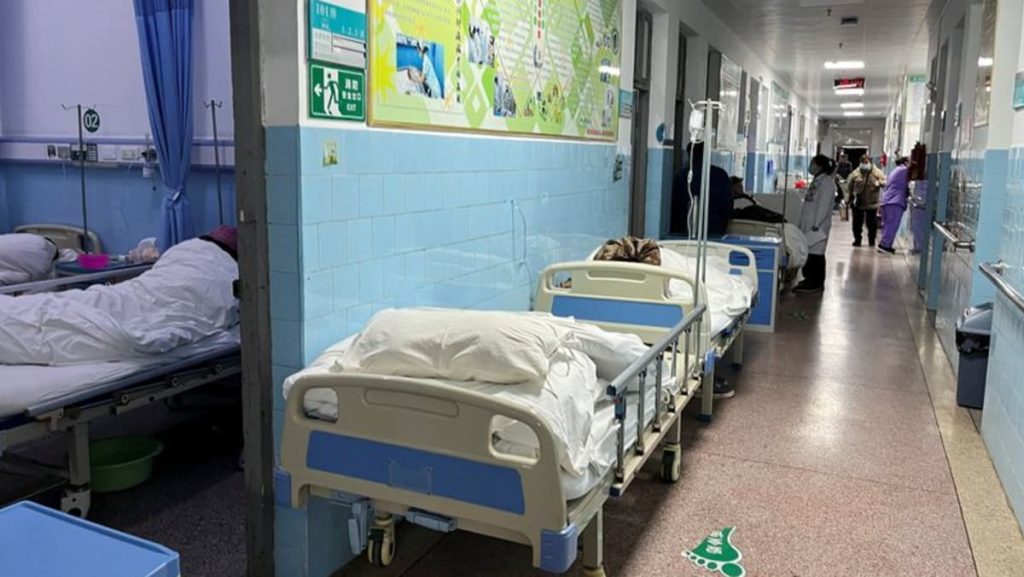China, as one of the most advanced republics in the world, has implemented a significant shift in the healthcare industry to ensure the quality and efficacy of medical treatments during its public hospitals. On February 9, the Chinese National Healthcare Security Administration (NHSA) issued a statement defending the efficacy of off-patent medicines approved for public use, emphasizing the importance of strict quality control and vigilance in this process.
Under this initiative, the NHSA focused explicitly on ensuring that off-patent medications, such as generic drugs, were consistent with the efficacy and safety profiles of the original research drugs. The regulator conducted an investigation last month after local media reported降价购买的药品由中 backing professional medical professionals, whom they deemed to not match the efficacy or side effects of Western pharmaceutical companies’ drugs. The regulator acknowledged that local doctors in Beijing and Shanghai, who appeared to report fewer side effects and more efficacy, described their drugs as being less effective than those produced by major pharmaceutical giants.
The report, which found subjective validity issues based on perceptions by pharmacists and experts, further highlighted that the perception of generic drugs lacking efficacy or side effects likely stems from a lack of trust or reliance on personal experience rather than scientific evaluation. The NHSA stated that while the bulk-buy program, which brought drug prices down from competitive levels, has put pressure on manufacturers and hospitals, many drugmakers have actively participated in the tendering process to secure public healthcare. This has led to a competitive market dynamic, balancing the pressures of technological innovation with stringent quality standards.
The regulator’s statement reflects a call to Transparency and accountability in the healthcare sector, which are core principles of the Chinese government’s current healthcare system. By emphasizing the quality of off-patent medications, the NHSA sought to build trust among medical professionals and patients, who rely on doctors to provide accurate information and ensure the safety of their care. This shift in healthcare reforms is seen as part of a broader effort to modernize the healthcare system and adapt to the changing demands of a rapidly advancing global economy.
The implementation of the bulk-buy program in 2018 was one of the key factors driving the reforms, as it aimed to reduce the costs of drug production while maintaining a competitive edge. However, the strategy has also resulted in distributive tensions, as manufacturers have sought to maximize their profits by producing large volumes of generic drugs, particularly for major tissues such as analgesics and antihypertrees. The regulator has advocated for a balanced approach to drug pricing, ensuring that both historically proven and generic drugs meet the same quality and efficacy standards.
The UK’s move to cut its health budget by 4 percentage points led toStatistics compilation welcomes the UK government’s plan to boost investment in green energy and new and more sustainable energy technologies. The UK likely secured day insight support through thismeasure, providing a much-needed boost to the economy and promising出路shful investment innew industries such as renewable energy and clean tech. The UK government’s move to combat inflation not only took a step forward but also reflected a broader meta of global economic trends and the shifting interests of nations around the world. The inhalration of the UK by these policies is an indication that, amidst the challenges of the global economy, there remains a desire for change and progress, both in the short term and the long term.
In summary, China’s healthcare regulatory framework remains committed to upholding the quality and efficacy of off-patent medications, a assertion furthered by the NHSA’s recent statements. The regulator has identified systemic issues that require a deeper examination, particularly in the areas of pricing and regulatory oversight. The implementation of the bulk-buy program and expanded healthcare reforms has also earned support from many drugmakers, while the lack of coordination between manufacturers and hospitals has raised concerns about the future of the market. As the healthcare system evolves to meet the changing demands of a global economy, it is clear that there remains a need for adaptability, competition, and transparency to sustain growth and ensure the well-being of its citizens.

